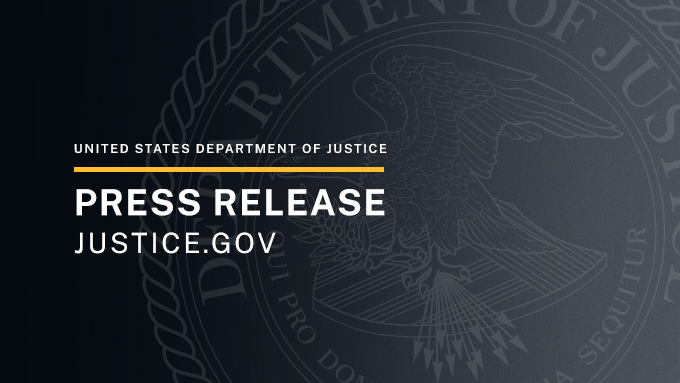Palm Springs fertility clinic bombing: How disaster was averted | CNN
Christy Holstege, the former mayor of Palm Springs who is 18 weeks pregnant, was playing with her pre-schooler in their living room Saturday morning when a blast reverberated through her neighborhood and a plume of smoke began to grow on the horizon. It didn’t take long for word to reach her that the building ablaze was the local fertility clinic.
Panic gripped Holstege as she thought of her last remaining embryo stored inside the clinic and her concern deepened as she considered the safety of the staff that had carried her family through the last five years of in-vitro fertilization treatment – first with her son and again this year.
Through a fortuitous turn of events, the usually bustling American Reproductive Center was completely empty when a car exploded outside the clinic Saturday, blowing a gaping hole in the side of the building and severing the power supply of the lab where thousands of embryos and other specimens are stored.
For miles around the blast zone, Coachella Valley families held the babies and toddlers conceived at ARC. Alongside hopeful would-be parents, they worried for the immediate fate of their remaining embryos in the clinic, and for the long-term safety of the reproductive center, which authorities believe was targeted in an act of domestic terrorism.
Mothers Sophie and Simone Bain-Tohl were hosting a party full of fellow parents when they heard news of the attack. The room grew somber as they surrounded a play mat full of wriggling babies – two of them conceived by IVF – and realized every person in the room either had embryos stored at ARC or knew someone who does.
Though the frozen embryos at the clinic would remain cold without electricity, a set of embryos being incubated would be irreversibly damaged if power was not restored within hours.
But at the scene of the explosion, a firefighter began to hatch a risky plan to protect future families, including that of a fellow first responder.
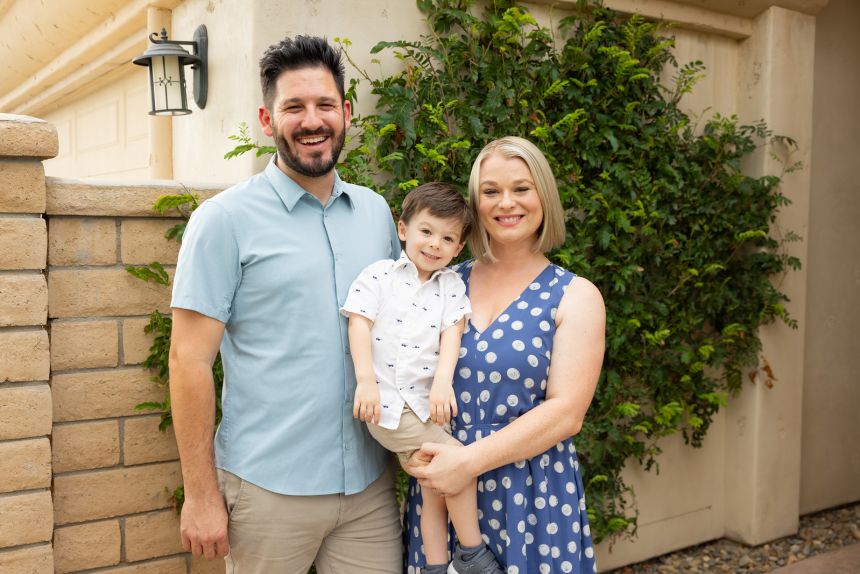
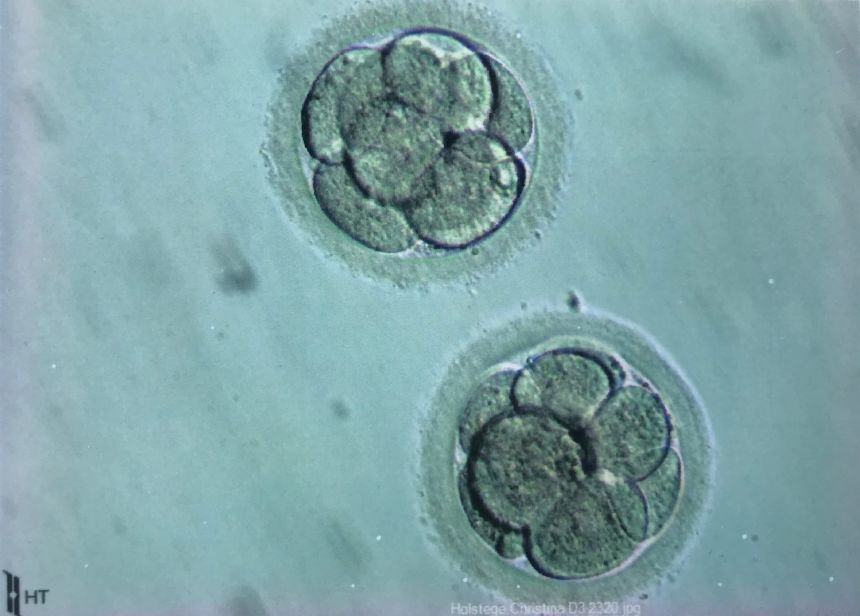
Firefighters initially rushed to tamp down the blaze caused by the explosion and ensure no victims were inside. But the crumbling building soon began to shift and bomb squad technicians became concerned about a possible secondary device that could put first responders at risk.
When Deputy Fire Chief Greg Lyle arrived an hour after the blast, first responders had been ordered to get out of the still smoking building until a bomb squad could assess the scene.
Clinic director Dr. Maher Abdallah, who was able to access clinic security cameras before the power went out, reported that the embryo lab appeared intact, but Lyle was not convinced. Itching to help, he and the other firefighters began considering how they could ensure the embryo incubators and cryogenic tanks were secure.
“So I went over to the lead FBI investigator, and kind of pitched a crazy scheme to him, fully expecting him to say no,” Lyle said.
The scheme: Lyle would venture alone into the still standing part of the building, which contained unknown risk of structural collapse, a secondary explosion or additional fires, to find the lab and assess the status of the embryos.
“This is a crazy plan, and if anybody’s going to get hurt, the only thing that I would be able to be comfortable with is that it would be me,” he said. “I just had a gut feeling it had to be me.”
The FBI agent, identified by the city police chief as Agent Chris Meltzer, embraced the plan under one condition: Meltzer would accompany Lyle.
Together, the pair headed into the building, cautiously navigating blown-out door frames, crumbling drywall and several inches of standing water, likely from a water main break or fire sprinklers. They eventually spotted a room stacked with what appeared to be cryogenic tanks.
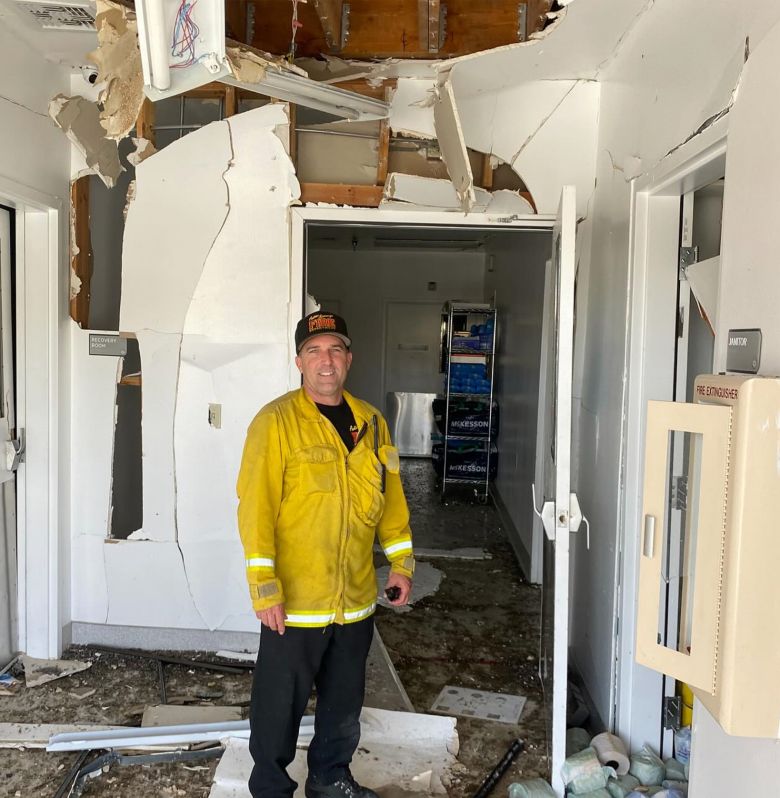
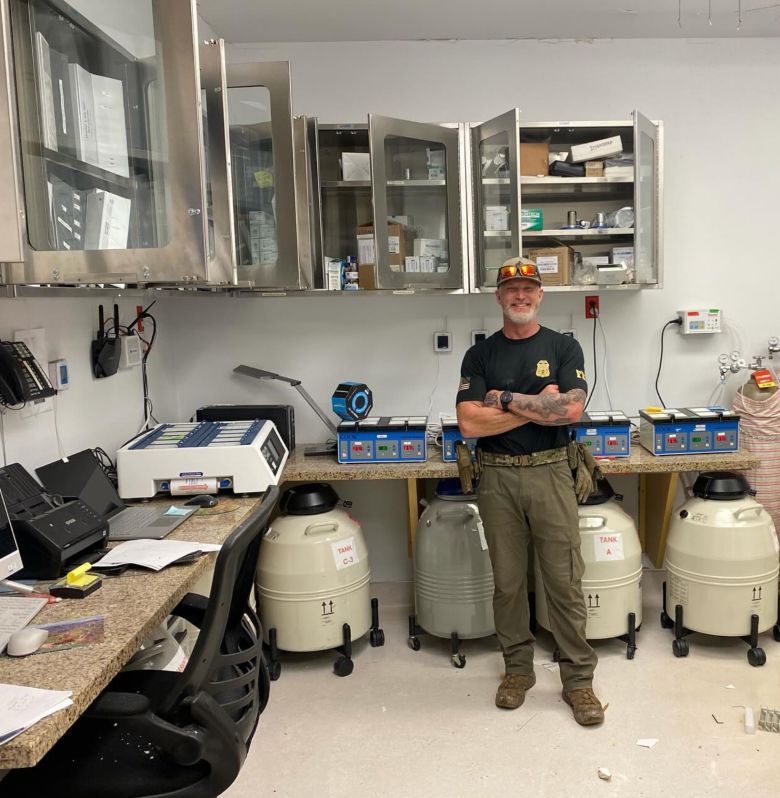
“We thought initially that maybe we could go in and just grab it and go. But it was obvious there was too much (equipment) – too big, too bulky, too heavy,” Lyle said. “So we determined the only thing we could do would be restore power to this stuff.”
Quickly, they realized the backup generators had failed, and it became increasingly clear they alone would not be able to restore the electricity. The pair picked their way back out of the building to assemble a team of firefighters, police and bomb squad personnel to address the outage.
“It took them a while, but they were successful,” Lyle said.
The team’s heroic initiative likely saved the incubating embryos, Abdallah said. An hour or two longer without power could have had tragic consequences.
Unbeknownst to Lyle, the ARC lab houses embryos belonging to the wife of one of his own firefighters, who sent Lyle a message thanking him for preserving his family’s future.
“It kind of hit home there. I didn’t even know,” Lyle said. The firefighter’s wife is among the patients with appointments early this week.
Yet, in order to continue ongoing treatment for patients, it would take a second team effort to keep the delicate process moving forward.
Most Saturdays, Abdallah and his staff are flitting between patient rooms and laboratories, sterilizing equipment, checking on growing embryos and walking hopeful parents through the arduous process of in vitro fertilization.
But through a series of inexplicable events, the clinic was completely empty on Saturday when the car exploded outside.
Abdallah had spontaneously decided to visit family. Two other weekend employees had been called away. And the clinic, just days before, had rescheduled a procedure that would have required 12 employees to be in the office at the time of the explosion.
“So many things happened to protect our staff,” Abdallah said. “It’s just really a miracle.”
Though shaken by the bombing, Abdallah and his staff have been seeking solace in each others’ presence and their shared determination to continue operating the clinic.
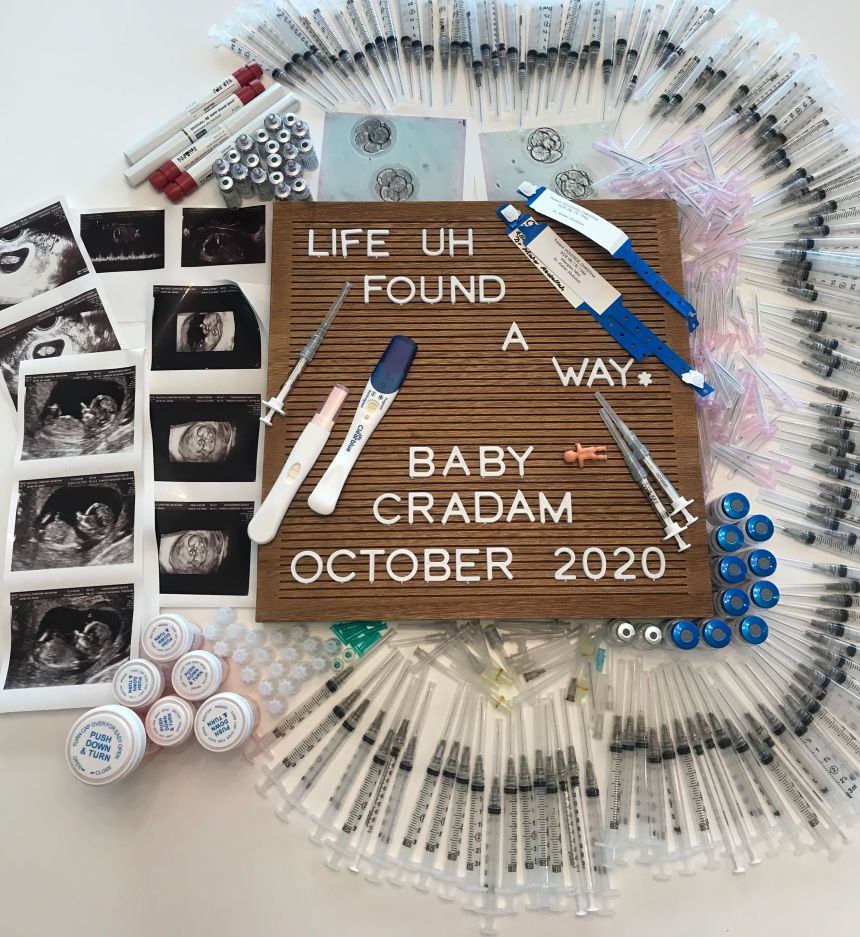
The attack, though unsuccessful, delivered a seismic shock to patients and violated a space that many feel is far more intimate than just a medical clinic; It’s the venue where their families were formed and precious possibilities are stored.
“I went there every week for the last 12 weeks, sometimes twice a week,” Holstege said. “That is my home, my medical home.”
As the only fertility clinic within a 100-mile radius, ARC stores thousands of embryos, eggs and sperm specimens for patients from Palm Springs to as far as Asia and the Middle East, Abdallah said.
Several families who depend on ARC for fertility services described a profound level of care from the clinic’s staff, who have made late-night calls to share test results, scheduled extra ultrasounds for nervous mothers and held patients in their arms during moments of both grief and joy.
“ARC is a place where we went to build our family and holds so much more than just a clinic. It’s a place of vulnerability and hope and tenderness, and the staff there is just incredible,” said Sophie Bain-Tohl, whose four-month-old son was conceived at ARC.
Though Bain-Tohl and her wife plan to keep their embryos at ARC, the attack has left them with a lingering fear for the safety of their embryos, which they hope will one day provide them with a daughter.
“Our sense of safety is shattered by something like this,” Simone Bain-Tohl said. “It’s such an absurd event that you never really think it’s going to happen, especially to a place that’s tied to so much hope and vulnerability.”
Investigators say the 25-year-old bombing suspect, who was killed in the blast, had “nihilistic ideations” and intentionally targeted the IVF facility – a reality that Holstege and other patients are having difficulty coming to terms with.
“Why would someone do this? Who could do this? This is a place of hope and creating life,” said Holstege.
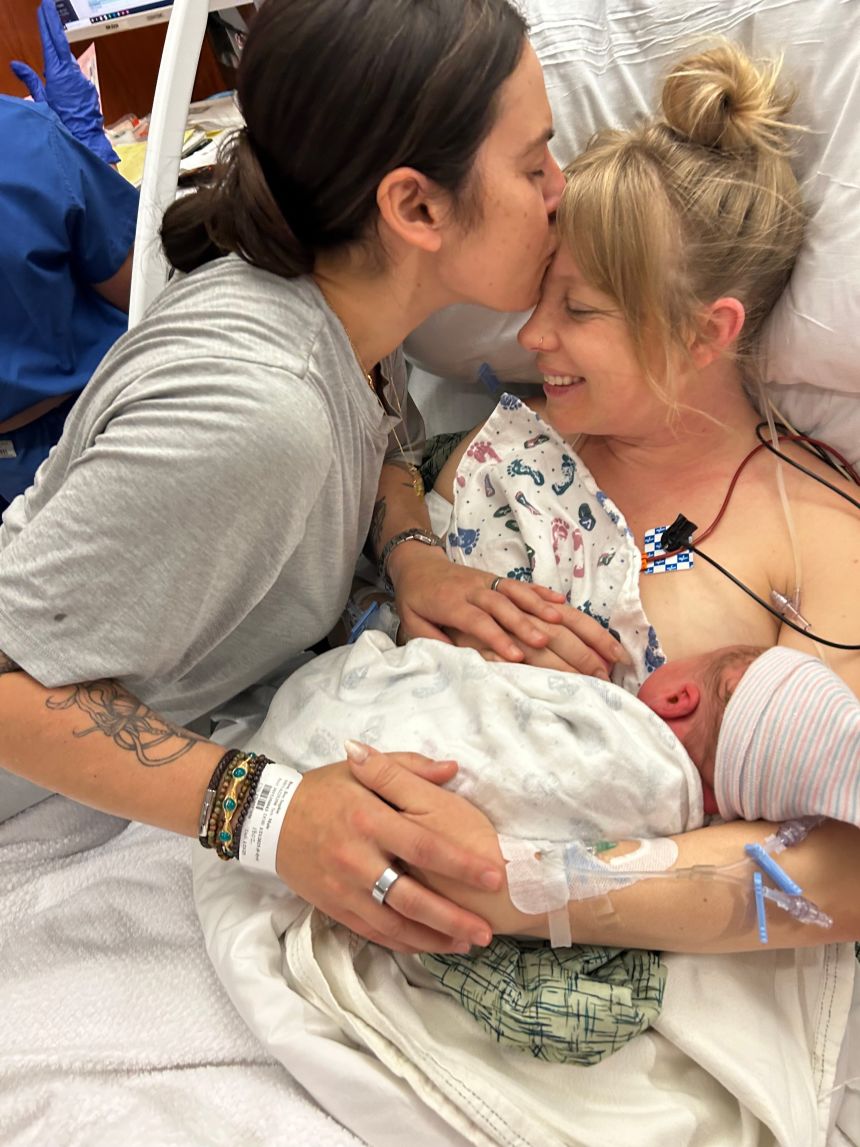
For some patients with appointments in the days following the explosion, halting treatment is simply not an option, Abdallah explained. The window for egg retrieval and embryo transfer is very tight and delaying care would mean starting the entire process over again – risking time and money many couples do not have.
Less than 24 hours after the bombing, Abdallah was formulating a plan to continue providing time-sensitive treatment to these patients, which required retrieving their valuable medical records from inside the most heavily damaged part of the clinic.
Again, a crew of fire personnel and other law enforcement entered the compromised building.
“We needed a team of people to kind of bucket brigade all these folders out of the building,” Lyle said. Abdallah also asked them to haul out two brand new ultrasound machines.
“I was just really amazed at the risk they’re willing to take, and how they just work so well together,” the clinic director said.
As the clinic races to rebuild, Abdallah is determined to continue providing care. On Monday, his staff saw patients in a room loaned to them by a fellow physician.
But the emotional trauma experienced by his patients and staff is not lost on Abdallah, whose office is holding a news conference Thursday to update the community on its plans for “moving forward with strength and renewed purpose.”
“The patients who have embryos, a lot of them regard those embryos as children,” he said. “They go through so much to get to that point where their embryos are frozen. They need a lot of reassurance to know that their embryos are safe.”
CNN’s Norma Galeana contributed to this report.










